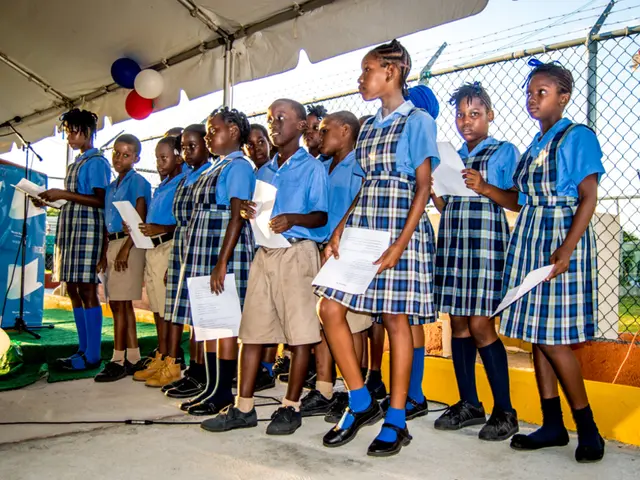Permanent Child-Parent Separations Demand Strict Evidence, According to Texas Supreme Court Decision
Reborn Hope for a Houston Mom:
A Texas mom, denied contact with her three kids due to a lifetime protective order, will get a second chance following a Texas Supreme Court ruling on Friday. The decision sets a high bar for proving such a long-term separation is necessary, deeming it similar to terminating parental rights.
Justice Jane Bland, writing for the court, highlighted the severity of such a prohibition, stating, "An order prohibiting contact for such a lengthy duration profoundly interferes with a parent's fundamental right to exercise care, custody, and control of her children."
In opinion released on Friday, Bland emphasized the need for "clear and convincing evidence" to support long-term restrictions on parental contact, as it impedes on a constitutional right - a parent's right to care for and communicate with their children.
Typically, a preponderance of evidence is enough for issuing civil protective orders. However, terminating parental rights requires a higher standard - trial courts must find the evidence "clear and convincing."
Attorney Holly Draper, representing the mother, Christine Stary, lauded the court's ruling as a significant milestone for parental rights.
"This case changes the standard for protective orders over two years as to a parent against a child to include the constitutionally required burden of clear and convincing evidence," Draper said, adding, "Now, vindictive parents can no longer use the protective order process as a backdoor around the rigorous requirements of termination."
The originally issued protective order against Stary was based on her arrest on felony family violence charges in 2020. Court documents alleged that Stary had brutally assaulted her then 9-year-old son, leading to injuries including a nosebleed.
Stary's ex-husband, Brady Ethridge, sought a protective order of longer than two years. A Harris County district court judge granted a lifetime protective order by the end of that year, prompting Stary's attorney to argue that she wasn't properly informed about the consequences.
Friday's ruling sends the case back to the trial court for re-evaluation under the revised legal standard. The court stressed the importance of due process, stating, "Due process demands that clear and convincing evidence support such an order and an evaluation of whether prohibiting all contact between a parent and child for the duration of the order is in the child's best interest."
Penelope Rivera, KERA's breaking news reporter, broke the story. For tips, email her at [email protected]. Your support keeps KERA News going strong - consider making a tax-deductible gift today. Thanks for reading!
- The Texas Supreme Court's ruling on Friday sets a high bar for proving long-term protective orders, requiring clear and convincing evidence.
- Friday's decision in the case of a Houston mom, Christine Stary, changes the standard for protective orders over two years, now requiring a constitutionally mandated burden of clear and convincing evidence.
- Mental health, family dynamics, and relationships are all potentially impacted by the Texas Supreme Court's ruling, as the court emphasized the importance of due process in cases involving long-term restrictions on parental contact.
- In the world of health-and-wellness, fitness-and-exercise, and women's health, this ruling could also reshape the way protective orders are approached, ensuring a fair and just consideration of a parent's right to care for and communicate with their children.
- Lifestyle changes may be on the horizon for families across Texas as they navigate the evolving landscape of civil protective orders, guided by the Texas Supreme Court's emphasis on the constitutional right of a parent to care for and communicate with their children.










